
The Enchanting Brittany Coast: France’s Rugged Gem
The Brittany Coast in France is a stunning stretch of rugged coastline that offers a unique blend of natural beauty, historical sites, and rich cultural heritage. This enchanting region is known for its dramatic cliffs, sandy beaches, and charming fishing villages. As you explore, you will find picturesque lighthouses, ancient forts, and quaint towns that offer a glimpse into the region's storied past. Brittany is famous for its Celtic influences, which are evident in its traditional music, dance, and festivals. The local cuisine is a highlight, with fresh seafood, crepes, and the famous Breton cider. The coastal trails provide breathtaking views and opportunities for hiking, cycling, and bird-watching. The region is also home to several protected natural parks, where you can enjoy the pristine beauty of the landscape. One of the must-visit spots is the Pink Granite Coast, known for its unique pink-hued rocks and crystal-clear waters. The medieval town of Saint-Malo, with its impressive city walls and historic buildings, is another highlight. Don't miss the chance to visit the island abbey of Mont Saint-Michel, a UNESCO World Heritage site, which is just a short drive away. Whether you're looking for adventure, relaxation, or a cultural experience, the Brittany Coast has something to offer every traveler.
Local tips in Brittany Coast
- Visit in late spring or early autumn to avoid crowds and enjoy mild weather.
- Try the local seafood, especially oysters and mussels, for an authentic taste of Brittany.
- Bring comfortable walking shoes for exploring the coastal trails and historic sites.
- Learn a few basic French phrases; while many locals speak English, they appreciate the effort.
- Check the tide schedules if planning to visit Mont Saint-Michel to experience it at both high and low tide.
The Enchanting Brittany Coast: France’s Rugged Gem
The Brittany Coast in France is a stunning stretch of rugged coastline that offers a unique blend of natural beauty, historical sites, and rich cultural heritage. This enchanting region is known for its dramatic cliffs, sandy beaches, and charming fishing villages. As you explore, you will find picturesque lighthouses, ancient forts, and quaint towns that offer a glimpse into the region's storied past. Brittany is famous for its Celtic influences, which are evident in its traditional music, dance, and festivals. The local cuisine is a highlight, with fresh seafood, crepes, and the famous Breton cider. The coastal trails provide breathtaking views and opportunities for hiking, cycling, and bird-watching. The region is also home to several protected natural parks, where you can enjoy the pristine beauty of the landscape. One of the must-visit spots is the Pink Granite Coast, known for its unique pink-hued rocks and crystal-clear waters. The medieval town of Saint-Malo, with its impressive city walls and historic buildings, is another highlight. Don't miss the chance to visit the island abbey of Mont Saint-Michel, a UNESCO World Heritage site, which is just a short drive away. Whether you're looking for adventure, relaxation, or a cultural experience, the Brittany Coast has something to offer every traveler.
When is the best time to go to Brittany Coast?
Iconic landmarks you can’t miss
Alignements de Carnac
Explore the mystery of Carnac's ancient standing stones, a vast megalithic complex dating back thousands of years in Brittany, France.
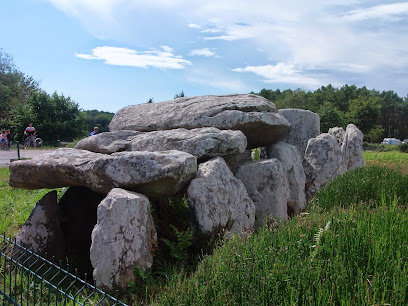
Huelgoat Forest
Discover the enchanting Huelgoat Forest in Brittany, where granite chaos, Celtic legends, and natural beauty create a magical experience.
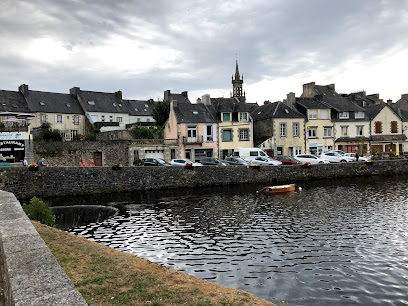
National Fort
Explore Fort National in Saint-Malo: a historic tidal fort offering panoramic views and a glimpse into centuries of maritime defense.
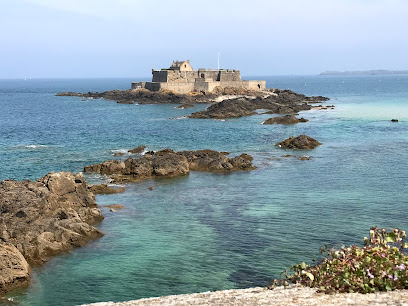
Cairn of Barnenez
Explore the ancient mysteries of the Cairn of Barnenez, one of Europe's largest prehistoric monuments overlooking the stunning Brittany coast.
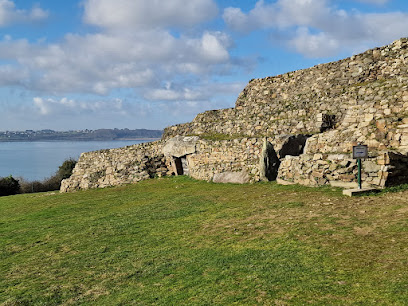
Unmissable attractions to see
La Cale de Beg Meil
Discover the charm of La Cale de Beg Meil in Fouesnant, Brittany: sandy coves, a historic port, stunning coastal views, and a vibrant seaside atmosphere await your visit.
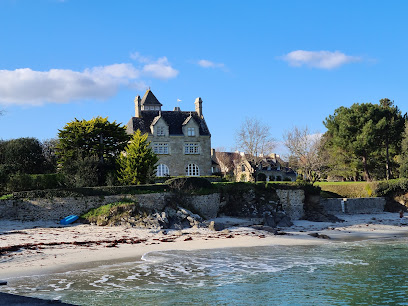
Beach Kérou
Discover Kérou Beach in Brittany: a stunning coastal haven with surf-friendly waves, scenic paths, and a Blue Flag commitment to environmental quality, perfect for families and nature lovers.
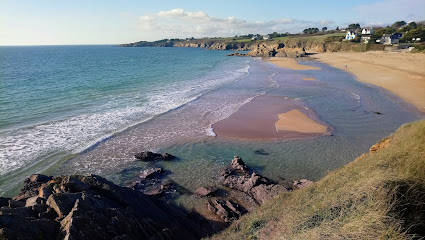
Beach Kerléven
Discover Kerléven Beach in Brittany: a family-friendly haven with warm waters, scenic beauty, and diverse activities, perfect for a relaxing coastal escape and exploration.
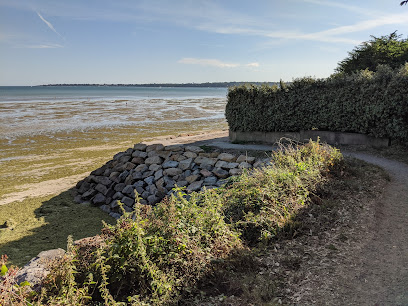
Penthièvre beach
Discover Brittany's stunning coastline at Penthièvre Beach: a vast, sandy paradise perfect for water sports, relaxation, and exploring the historic Fort Penthièvre.
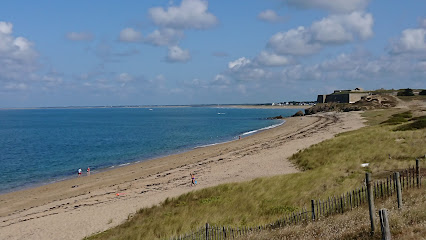
Plage De La Salinette
Discover Plage de la Salinette in Saint-Briac-sur-Mer: a beautiful Emerald Coast beach with fine sand, clear waters, historic charm, and family-friendly activities.
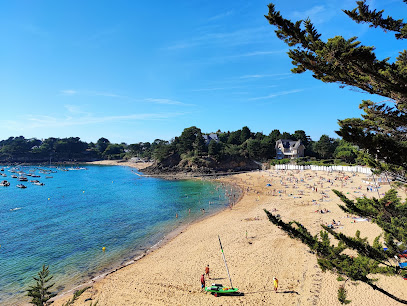
Beach Kernevest
Discover Beach Kernevest in Saint-Philibert: a family-friendly Breton paradise with white sands, tranquil waters, sailing, and coastal charm, perfect for a relaxing getaway.
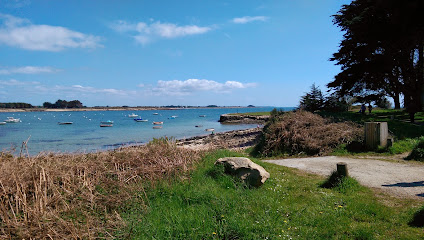
Rock Land Great Sands Beach
Discover the charm of Rock Land Great Sands Beach in Brittany: golden sands, dramatic rocks, and a rich artistic heritage await in this coastal paradise of Clohars-Carnoët.
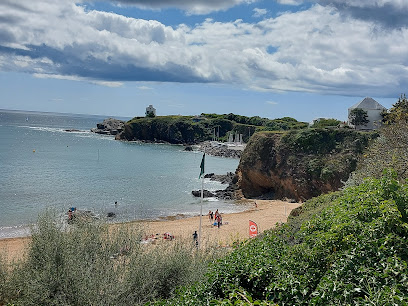
Beach of Port Blanc
Discover the serene beauty of Beach of Port Blanc in Quiberon: soft sands, turquoise waters, and stunning sunsets await on Brittany's captivating Côte Sauvage.
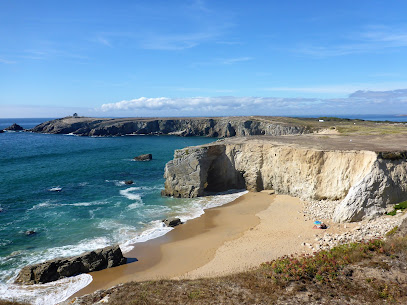
Poulains lighthouse
Discover the historic Poulains Lighthouse on Belle-Île-en-Mer: a beacon of maritime history, stunning coastal views, and the legacy of Sarah Bernhardt await on Brittany's captivating island.
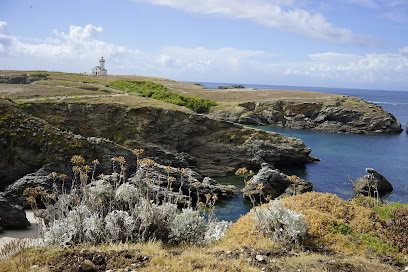
Plage du Perron
Discover Plage du Perron in Saint-Briac-sur-Mer: a stunning beach with fine sands, clear waters, and a unique island connection, perfect for relaxation and coastal exploration on Brittany's Emerald Coast.
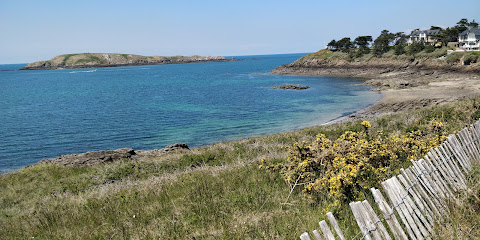
Beach 4 dale
Discover Plage des 4 Vaulx in Saint-Cast-le-Guildo: a scenic beach perfect for nature lovers, shore fishing, and family adventures on Brittany's stunning Emerald Coast.
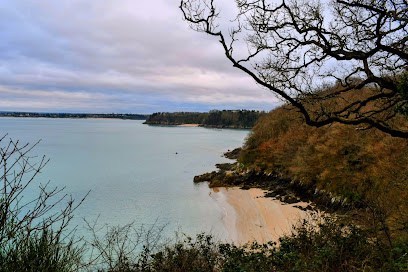
The beach Goas Treiz
Discover the serene beauty of Goas Treiz Beach in Trébeurden, Brittany: golden sands, clear waters, and stunning sunsets await on the Pink Granite Coast, perfect for relaxation and water sports.
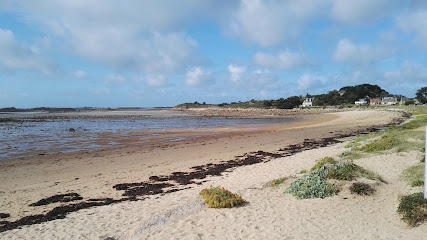
Red Sands beach
Discover the unique beauty of Red Sands Beach on Île de Groix, France, where garnet-rich sands meet the Atlantic Ocean, offering a mineralogical marvel and tranquil coastal escape.
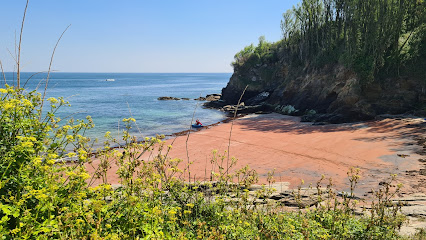
beach pit vaults
Discover the serene beauty of La Fosse aux Vaults in Saint-Lunaire, a hidden gem on Brittany's Emerald Coast offering tranquil escapes and stunning coastal views.
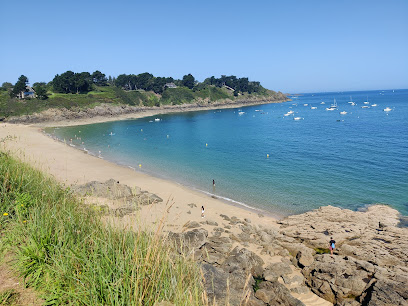
Beach of Locmaria
Discover the serene beauty of Locmaria Beach on Groix Island: golden sands, clear waters, and a charming village atmosphere await in this Breton paradise.
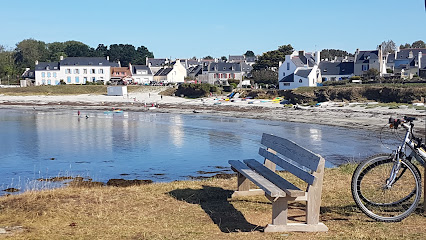
Essential places to dine
Les Pieds Dans l'Eau
Discover Les Pieds Dans l'Eau in Guidel - A seafood lover's paradise with delicious crepes and breathtaking ocean views.
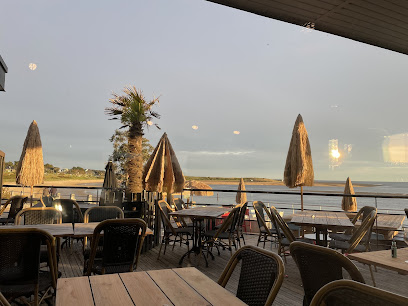
Les Algues Marines
Experience exquisite French cuisine and innovative tapas at Les Algues Marines in Belz – where every meal is a delightful culinary adventure.
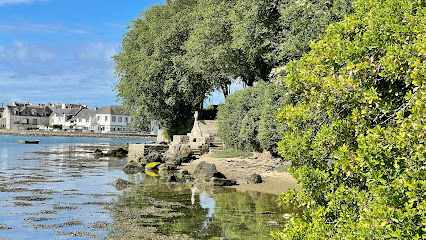
LA PROMENADE - RESTAURANT
Experience exquisite French cuisine at La Promenade in Pont-Aven with stunning riverside views and authentic local flavors.
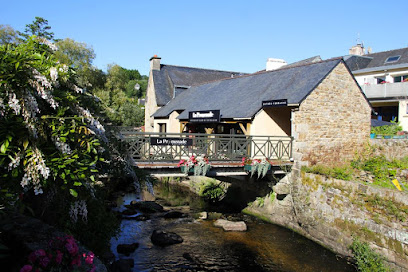
Les 3 Buis
Experience exquisite French cuisine at Les 3 Buis in the heart of Pont-Aven, where tradition meets culinary innovation.
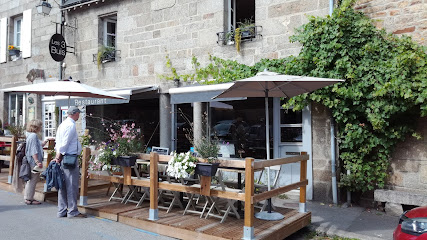
Côte Ouest
Experience authentic French cuisine at Côte Ouest in Plérin - where local flavors meet exquisite dining.
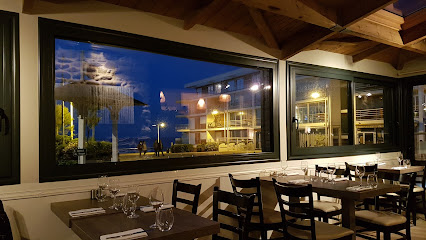
Le Coquillage
Savor exquisite haute French cuisine at Le Coquillage, where culinary artistry meets stunning views in Saint-Méloir-des-Ondes.
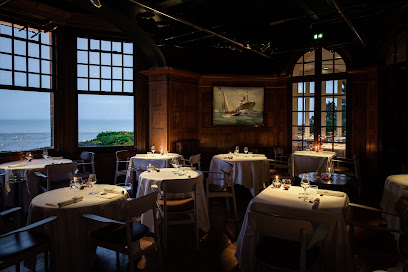
Le Brin De Bretagne
Experience authentic French cuisine at Le Brin De Bretagne, where every dish tells a story of Brittany's culinary heritage.
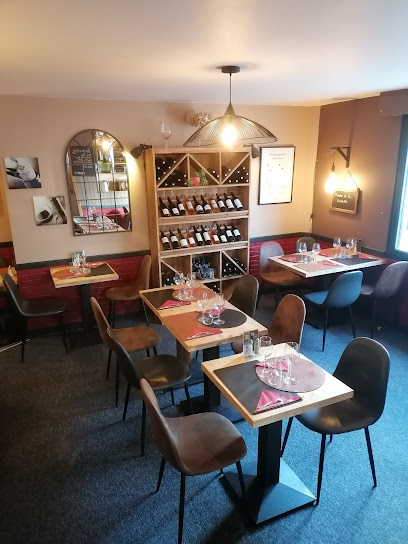
le paris-brest by christian le squer
Experience exquisite French dining at Le Paris-Brest by Christian Le Squer in Rennes, where culinary tradition meets modern elegance.
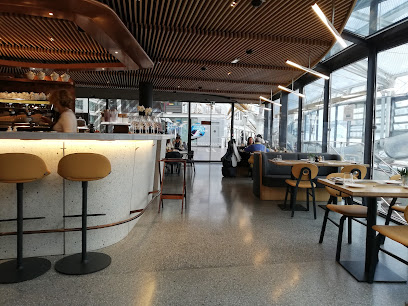
L'Ecume des Jours
Experience authentic French cuisine at L'Ecume des Jours in Roscoff, where local ingredients meet coastal charm for an unforgettable dining experience.
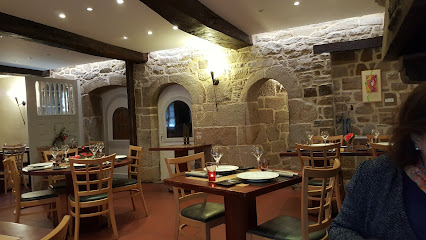
Ar Men Du
Experience gourmet Haute French cuisine and luxurious accommodations at Ar Men Du in beautiful Névez, Brittany.
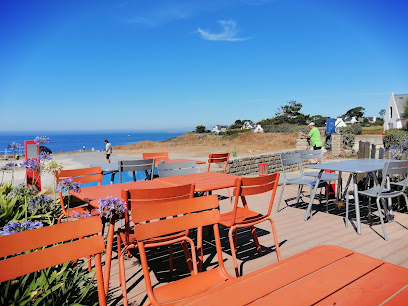
Le Truc Bidule
Savor authentic French cuisine at Le Truc Bidule in Saint-Cast-le-Guildo - a culinary gem by the sea offering delightful dishes and warm hospitality.
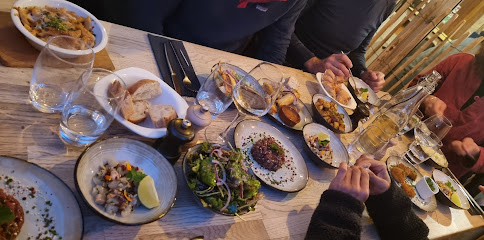
Restaurant Latitude 47 - Damgan - Morbihan - Bretagne
Experience exquisite French cuisine at Restaurant Latitude 47 in Damgan - where ocean views meet culinary excellence.
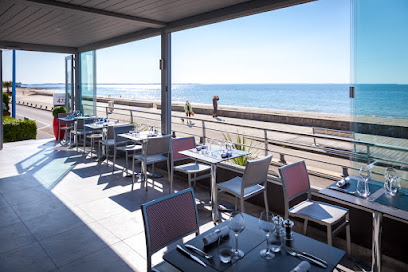
La Poêlée Toquée
Experience exquisite French and Mediterranean cuisine at La Poêlée Toquée in Moëlan-sur-Mer—where every dish tells a story.
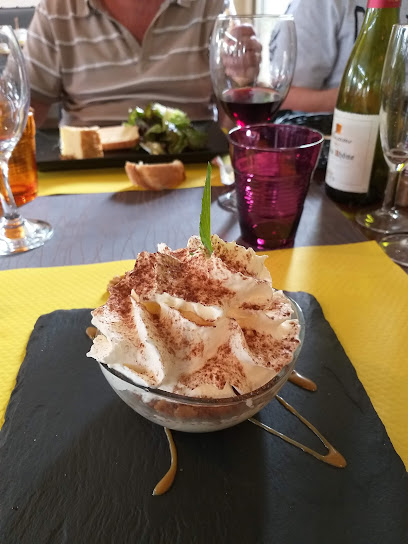
Manoir de Lan Kerellec
Experience exquisite French cuisine and luxurious lodging at Manoir de Lan Kerellec in beautiful Trébeurden.

Restaurant Le Pressoir
Experience the finest French cuisine at Restaurant Le Pressoir in Saint-Avé – where every meal is a celebration of flavor and elegance.
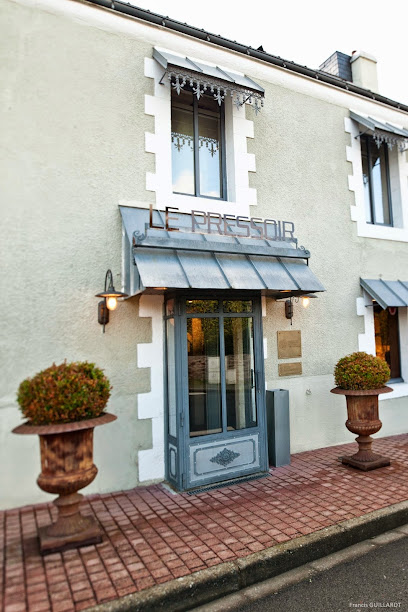
Markets, malls and hidden boutiques
Rennes Alma
Explore Rennes Alma: A Shopping Haven in Rennes with Diverse Shops, Dining, and Entertainment for Everyone.
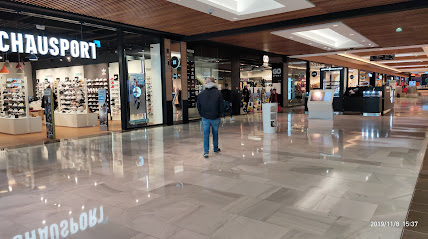
Factory outlet Françoise Saget
Explore Factory Outlet Françoise Saget for exquisite linens, stylish home goods, and elegant lingerie at unmatched prices in Les Fougerêts.
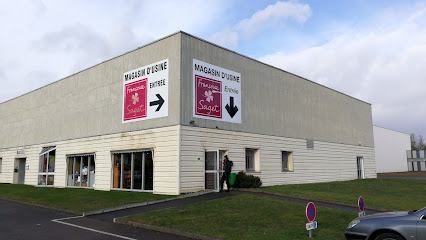
Galeries Lafayette Lorient
Explore Galeries Lafayette Lorient: A premier department store offering fashion, beauty, and lifestyle products in the heart of Lorient, France.
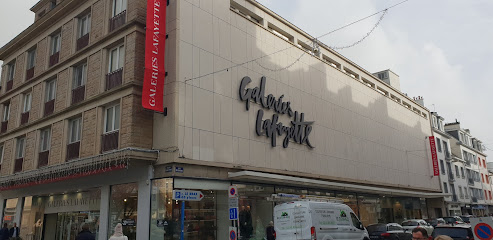
Carabreizh - Spécialiste du caramel au beurre salé
Discover the exquisite taste of salted butter caramel at Carabreizh, a sweet haven in Landévant, Brittany. A must-visit for every sweet tooth!
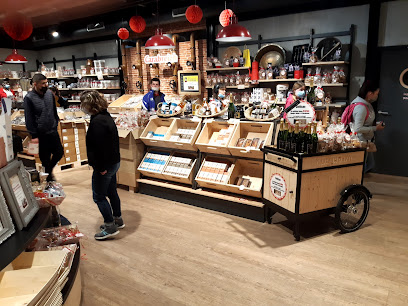
Intersport Saint Quay Perros
Explore top-notch sportswear and gear at Intersport Saint Quay Perros, your ultimate shopping destination for athletic apparel in Brittany.
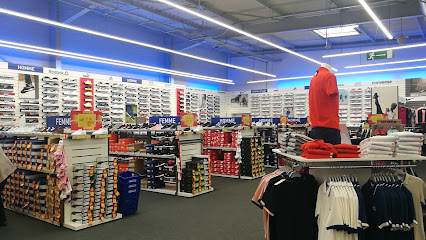
La Station
Experience the essence of beach culture at La Station, Pénestin's premier destination for beachwear, fishing gear, and unique gifts.
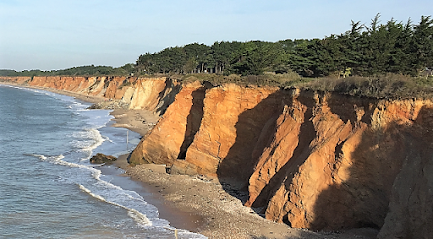
Biscuits of the Emerald Coast
Experience the flavors of Brittany at Biscuits of the Emerald Coast, your destination for gourmet cookies and unique souvenirs in Erquy.
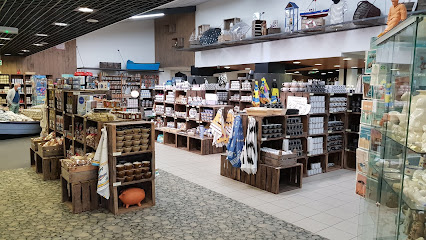
Biscuit Emerald Coast
Explore the flavors and crafts of Brittany at Biscuit Emerald Coast, your go-to souvenir store in Saint-Alban, France.
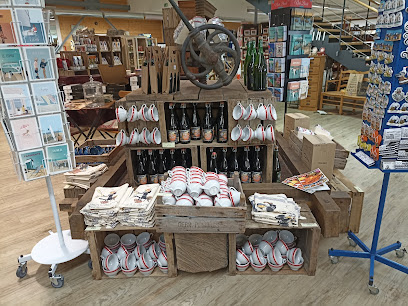
Shop FC Lorient
Explore Shop FC Lorient, a premier sporting goods store in Lorient, where passion for sports meets local culture and community pride.
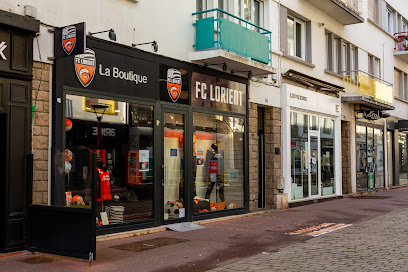
Western Mode Boutique en ligne, show room sur RDV
Explore unique western apparel at Western Mode Boutique in Pluneret, your destination for stylish clothing for all ages.

Leonie thank you!
Discover unique fashion accessories at Leonie in Vannes, where style meets elegance in a charming atmosphere perfect for every tourist.
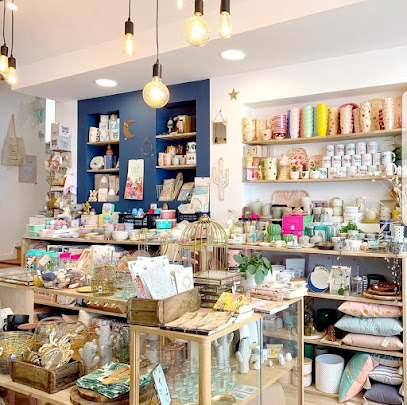
French Blossom
Explore French Blossom, a charming gift shop in Rennes offering unique children's clothing, toys, and home goods that capture the essence of French creativity.

Breizh Boutik / la boutique de bretagne.fr
Explore Breizh Boutik for exquisite local gifts and gourmet treats that capture the essence of Brittany, perfect for souvenirs and special occasions.
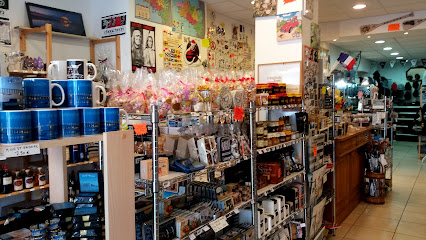
Little Marmaille
Experience the magic of childhood at Little Marmaille, Vannes' beloved toy store, offering delightful toys, baby products, and festive balloons.
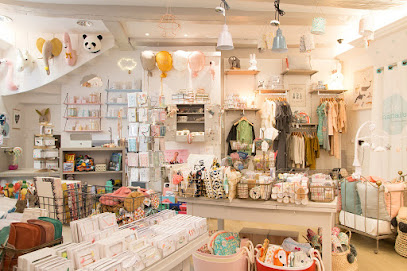
LA MAISON BLANCHE
Explore La Maison Blanche in Saint-Cast-le-Guildo - a unique store for clothing, outdoor gear, and delightful gifts reflecting local charm.
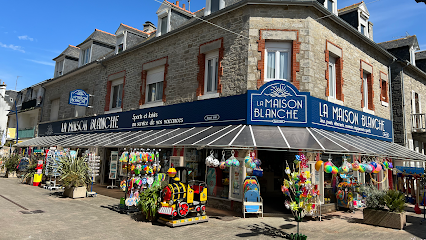
Essential bars & hidden hideouts
Awen Brew Pub
Discover Awen Brew Pub in Vannes, where craft beers meet local cuisine in a lively atmosphere perfect for relaxation and enjoyment.
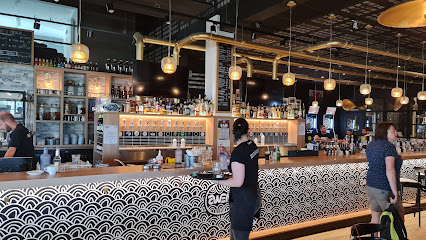
Le Fisher Carnac
Discover the vibrant atmosphere and stunning views at Le Fisher Carnac, a premier bar on the beautiful coastline of France.
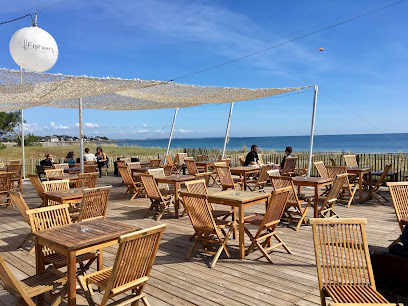
Ty Anna Tavarn
Discover the lively ambiance and local music scene at Ty Anna Tavarn, a must-visit bar in the heart of Rennes, France.
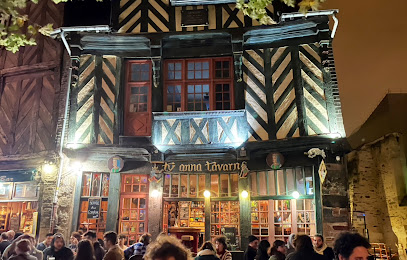
O'Roof
Discover O'Roof: A vibrant Irish pub in Guidel, offering hearty food, refreshing drinks, and lively entertainment in a warm, inviting atmosphere.
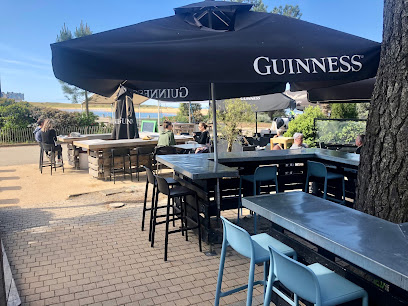
Beach Bar Quiberon
Experience the vibrant atmosphere and delicious coastal cuisine at Beach Bar Quiberon, your ideal seaside retreat in Saint-Pierre-Quiberon.
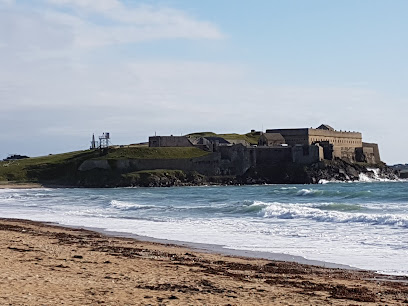
The Breizh Shelter
Experience the vibrant culinary landscape of Lannion at The Breizh Shelter, where gourmet flavors meet lively entertainment in a welcoming atmosphere.
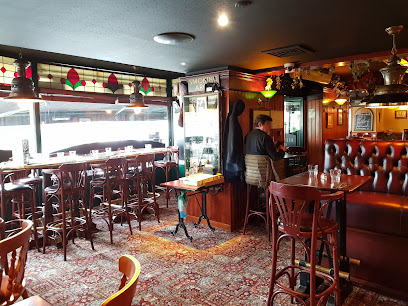
Beach Break
Discover Beach Break in Santec: a lively bar with gourmet tapas, delightful cocktails, and a friendly atmosphere perfect for every visitor.
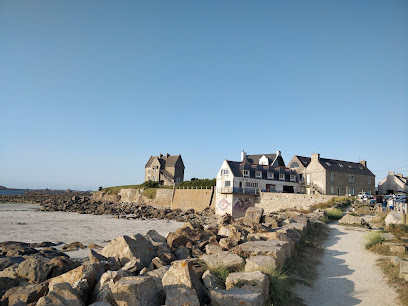
Sunset Café
Experience the vibrant atmosphere and delightful drinks at Sunset Café, a must-visit bar in the heart of Rennes for every traveler.
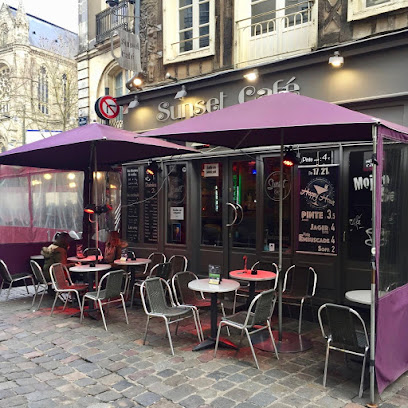
l'Embraque
Experience the lively atmosphere of l'Embraque, a premier beer hall in Saint-Malo, offering local brews and delightful snacks in a charming setting.
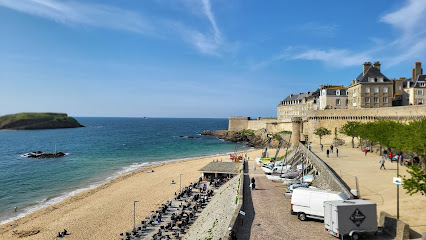
Le Britannia bar à bières.
Experience the vibrant atmosphere and local brews at Le Britannia in Perros-Guirec, where live music and good times await.
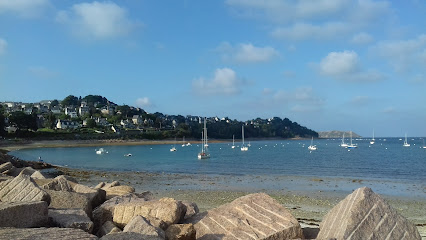
Bar Les Côtiers
Discover the charm of Bar Les Côtiers in Plouhinec, where coastal beauty meets vibrant local culture and delicious refreshments await.
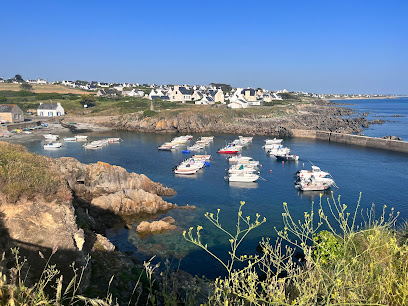
La Truie et Sa Portée
Discover La Truie et Sa Portée in Lorient, a charming bar and cafe offering a cozy atmosphere, quality drinks, and delightful light bites.
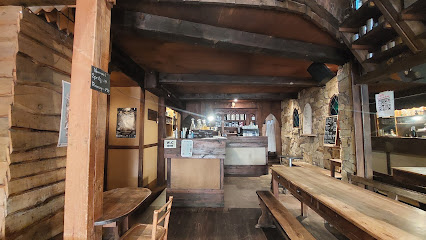
Le Carré 56
Discover the perfect blend of French cuisine and fine wines at Le Carré 56 in La Trinité-sur-Mer, a charming bar and café with stunning coastal views.
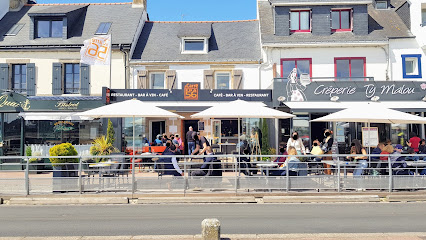
Le Sunset Bar
Discover the vibrant Le Sunset Bar in Dinard, offering refreshing drinks and stunning ocean views for an unforgettable beachside experience.
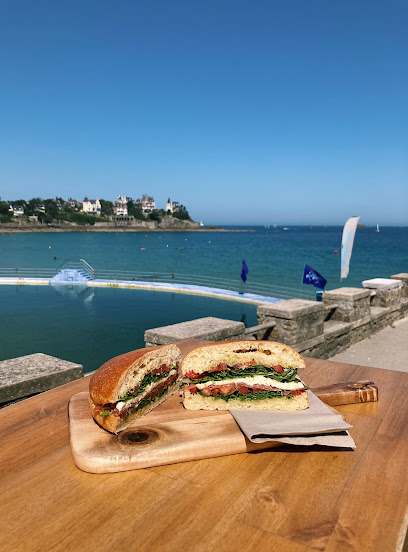
Local Phrases about Brittany Coast
-
- HelloDemat
[deh-maht] - GoodbyeKenavo
[keh-na-vo] - YesYa
[ya] - NoNann
[nahn] - Please/You're welcomeMar plij
[mar plee] - Thank youTrugarez
[troo-gah-rez] - Excuse me/SorryDigarez
[dee-gah-rez] - How are you?Conc'hoc'h ho poent?
[konk-hok ho poent] - Fine. And you?Mat. Ha te?
[maht. ah teh] - Do you speak English?Kaset e vezit saozneg?
[ka-set e vee-zeet sah-oz-nek] - I don't understandN'ouzon ket
[noo-zon ket]
- HelloDemat
-
- I'd like to see the menu, pleaseGouzout a rit din melestradur
[goo-zoot a reet deen me-lest-ra-dur] - I don't eat meatNe gav din ket kig
[neh gav deen ket keeg] - Cheers!Yec'hed mat!
[yeh-hed maht] - I would like to pay, pleaseGouzout a rit din bezan o chom
[goo-zoot a reet deen be-zaan o khom]
- I'd like to see the menu, pleaseGouzout a rit din melestradur
-
- Help!Sikour!
[see-koor] - Go away!Dilennit!
[dee-len-neet] - Call the Police!Galvit ar c'hleier!
[gal-veet ar khley-er] - Call a doctor!Galvit ur medisinour!
[gal-veet oor me-dee-see-noor] - I'm lostKaset am eus
[ka-set am eus] - I'm illMa oa
[ma oh]
- Help!Sikour!
-
- I'd like to buy...Gouzout a rit din prenañ...
[goo-zoot a reet deen pren-anh] - I'm just lookingN'ouzon ket
[noo-zon ket] - How much is it?Piv eo ar pris?
[peev oh ar prees] - That's too expensiveDre bell eo
[dre bell oh] - Can you lower the price?Ha c'hellit da zreizañ ar pris?
[ah khel-leet da zray-zaan ar prees]
- I'd like to buy...Gouzout a rit din prenañ...
-
- What time is it?Petra eo an amzer?
[pe-tra oh an am-zer] - It's one o'clockUn eur
[oon eur] - Half past (10)Hanter dimeziad
[hahn-ter dee-mez-ee-ad] - MorningBraloù
[brah-loo] - AfternoonD'ar goudevezh
[dar goo-de-vezh] - EveningNoz vat
[noz vaht] - YesterdayDec'h
[dek] - TodayHiziv
[heez-eve] - TomorrowWarc'hoazh
[war-kho-azh] - 1Unan
[oo-nan] - 2Daou
[doo] - 3Tri
[tree] - 4Peder
[ped-er] - 5Pemp
[pemp] - 6C'hwec'h
[khweh] - 7Seizh
[sayz] - 8Eizh
[ayz] - 9Nav
[nav] - 10Deg
[degg]
- What time is it?Petra eo an amzer?
-
- Where's a/the...?Pelec'h emañ ur/ar...?
[pe-lek eh-man oor/ar] - What's the address?Petra eo an hent?
[pe-tra oh an ent] - Can you show me (on the map)?Ha c'hoant da ziskouez din (war ar bajenn)?
[ah khwan da zis-kwez deen (war ar ba-jenn)] - When's the next (bus)?Pelec'h e vo ar pezh a zeu?
[pe-lek eh vo ar pezh a zew] - A ticket (to ....)Un taolenn (da ...)
[oon tah-olenn (da)]
- Where's a/the...?Pelec'h emañ ur/ar...?
History of Brittany Coast
-
The history of the Brittany Coast dates back to prehistoric times. The region is home to some of the world's oldest and most impressive megalithic structures, such as the standing stones at Carnac. These alignments of thousands of menhirs were erected by the pre-Celtic people of Brittany over 6,000 years ago and remain one of the most enigmatic archaeological sites in Europe.
-
During the Roman era, the Brittany Coast was known as Armorica, a name derived from the Celtic word for 'coastal region.' The Romans established several settlements in the area, including the city of Condate, now known as Rennes. Roman roads, aqueducts, and villas have been uncovered throughout the region, revealing the extent of Roman influence and the integration of Armorica into the Roman Empire.
-
In the early Middle Ages, the Brittany Coast experienced significant change with the arrival of the Bretons from the British Isles. Fleeing Anglo-Saxon invasions, these Celtic people settled in Armorica, bringing with them their language, traditions, and Christianity. This migration led to the region being named Brittany, or 'Little Britain,' in homage to their homeland.
-
From the 9th century onwards, Brittany became a powerful and semi-independent Duchy. It had its own dukes who ruled over the land, often engaging in political maneuvers with the French and English crowns. The Dukes of Brittany were instrumental in shaping the region's distinctive identity, fostering a unique blend of Celtic and French cultures.
-
The Brittany Coast is dotted with medieval fortifications and castles that tell tales of its tumultuous past. Key sites include the imposing Château de Fougères, one of the largest medieval fortresses in Europe, and the coastal citadel of Saint-Malo, which played a crucial role in the region's defense against seaborne invaders and pirates.
-
The 14th century was marked by the War of the Breton Succession, a conflict that arose after the death of Duke John III with no direct heir. The war was fought between the House of Montfort and the House of Blois, each supported by the English and French crowns respectively. The conflict ended with the Treaty of Guérande in 1365, securing the duchy for the Montfort line.
-
The late 15th century saw Brittany's gradual integration into the Kingdom of France. This process culminated in 1532 when the Duchy of Brittany was formally annexed by France under the reign of King Francis I. Despite this, the region retained a distinct cultural identity, with Breton language and customs persisting alongside French influences.
-
The Brittany Coast has a rich maritime heritage, deeply intertwined with its history. Ports like Brest and Lorient became vital naval bases, while fishing and shipbuilding thrived along the coastline. The region's seafaring tradition is celebrated in numerous maritime festivals and museums, such as the Musée de la Marine in Brest, which showcases the naval history of France.
-
During World War II, the Brittany Coast was a strategic location for Nazi Germany, which constructed part of the Atlantic Wall defenses along its shores. Key sites include the U-boat bases at Lorient and Saint-Nazaire, which played critical roles in the Battle of the Atlantic. The coast witnessed significant Allied operations, including the liberation of Saint-Malo in 1944.
-
In recent decades, Brittany has experienced a cultural renaissance, with renewed interest in Breton language, music, and traditions. Festivals such as the Festival Interceltique de Lorient celebrate the region's Celtic heritage, attracting visitors from around the world. The preservation and promotion of Breton culture continue to be a source of pride for the people of Brittany.
Brittany Coast Essentials
-
Brittany Coast is accessible through several modes of transportation. The nearest major airport is Nantes Atlantique Airport, approximately 100 kilometers from the coast. From Paris, you can take high-speed trains (TGV) to cities like Rennes, Brest, and Quimper, which are gateways to the Brittany Coast. Alternatively, you can drive from Paris, which takes about 4-5 hours, or take a bus service, which is a more budget-friendly option.
-
Once in Brittany, getting around is relatively easy. Public transportation options include buses and regional trains (TER). Renting a car is highly recommended for exploring the coastal villages and scenic countryside at your own pace. Bicycles are also a popular mode of transport, particularly in the summer months when the weather is pleasant. For short distances within towns, walking is often the best option.
-
The official currency in France is the Euro (€). Credit and debit cards are widely accepted in hotels, restaurants, and larger shops. However, it’s advisable to carry some cash, especially for smaller establishments, local markets, and rural areas. ATMs are readily available in towns and cities along the Brittany Coast.
-
The Brittany Coast is generally a safe destination for tourists. However, it is always wise to take standard precautions. Avoid isolated areas at night, and be cautious of pickpockets in crowded places and tourist hotspots. There are no specific neighborhoods with high crime rates targeting tourists, but staying vigilant and aware of your surroundings is always a good practice.
-
In case of emergency, dial 112 for immediate assistance, which is the European emergency number for police, medical, and fire services. Major towns have hospitals and pharmacies where you can seek medical help. It is advisable to have travel insurance that covers medical emergencies. Learning a few basic French phrases can also be helpful in emergency situations.
-
Fashion: Do dress smart-casual; avoid overly casual attire when dining out. Don’t wear beachwear away from the beach. Religion: Do respect local customs and traditions, especially in churches. Don’t take photos during religious services. Public Transport: Do validate your ticket before boarding trains and buses. Don’t talk loudly on public transport. Greetings: Do greet people with 'Bonjour' and a handshake. Don’t use first names until invited. Eating & Drinking: Do try local seafood and crepes. Don’t rush meals; dining is a leisurely activity.
-
To experience Brittany Coast like a local, visit the weekly markets where you can buy fresh produce and artisanal goods. Engage with locals; they are often friendly and willing to share tips about hidden gems. Don’t miss out on local festivals, especially music festivals like the Festival Interceltique de Lorient. For a unique experience, consider staying in a traditional Breton cottage or 'gîte'.
Nearby Cities to Brittany Coast
-
Things To Do in Rennes
-
Things To Do in St. Brelade
-
Things To Do in St. Aubin
-
Things To Do in St. Peter
-
Things To Do in St. Helier
-
Things To Do in St. Clement
-
Things To Do in St. Ouen
-
Things To Do in St. Lawrence
-
Things To Do in Gorey
-
Things To Do in Trinity
-
Things To Do in Forest
-
Things To Do in St. Martin
-
Things To Do in St. Saviour
-
Things To Do in St. Andrew
-
Things To Do in Castel













